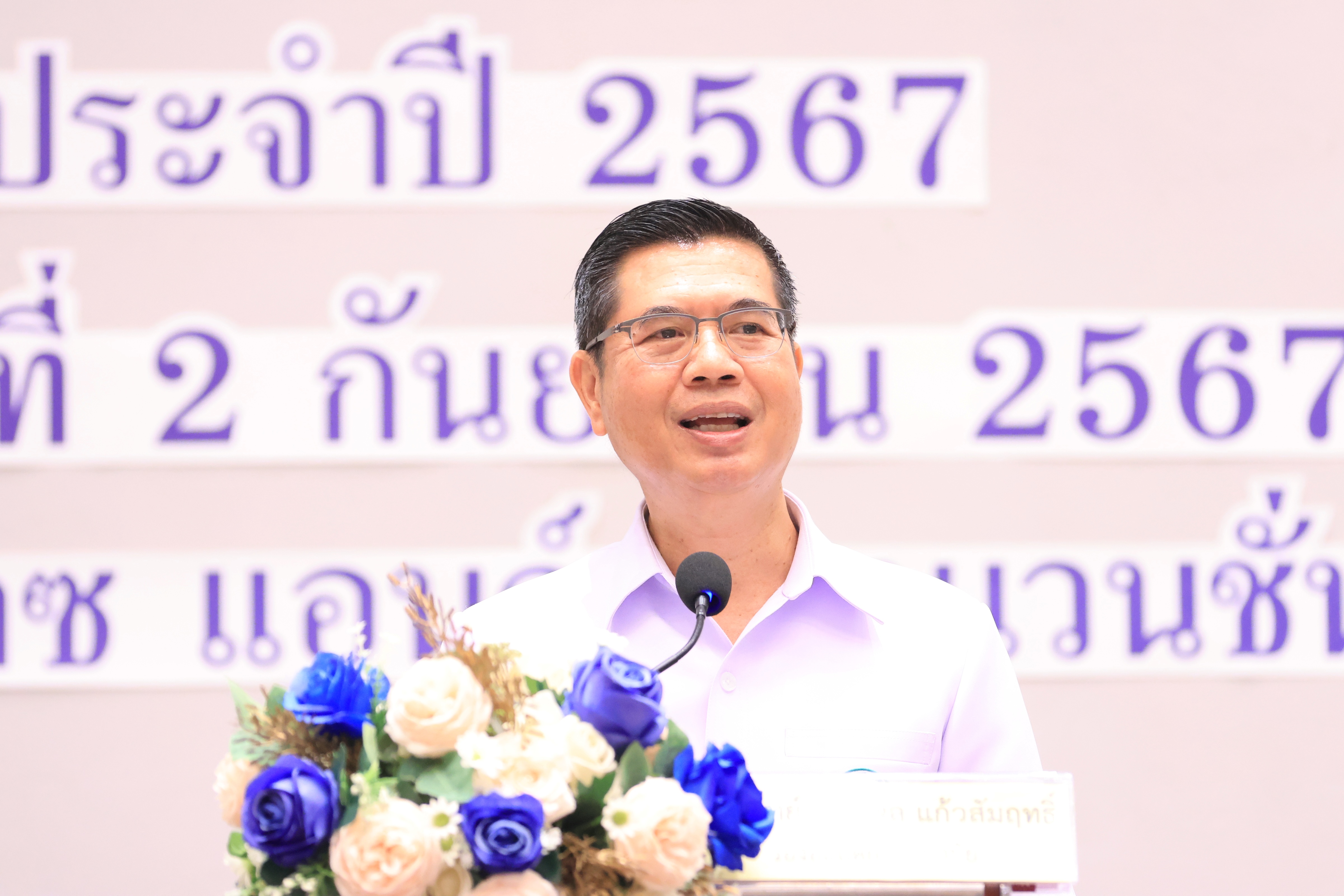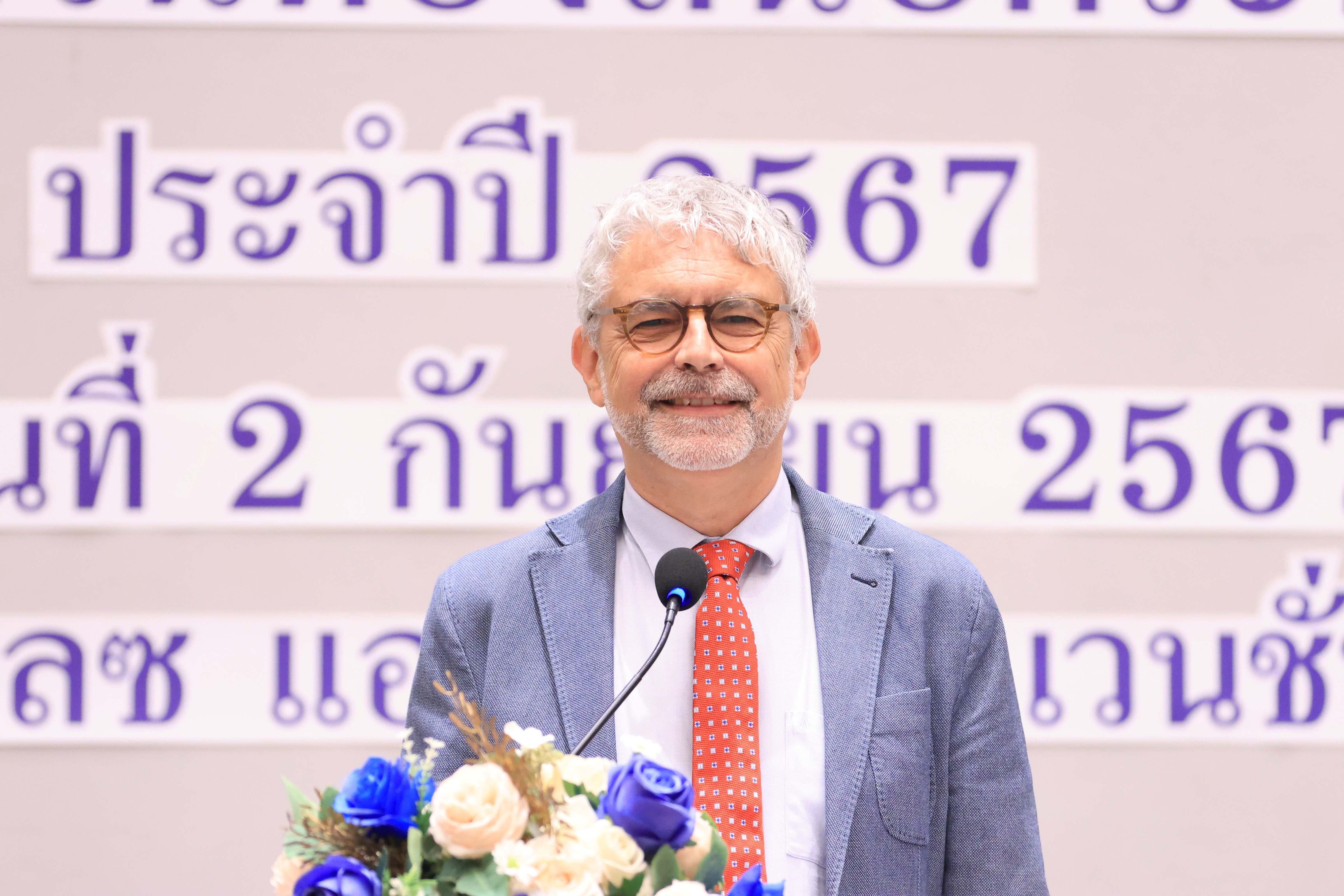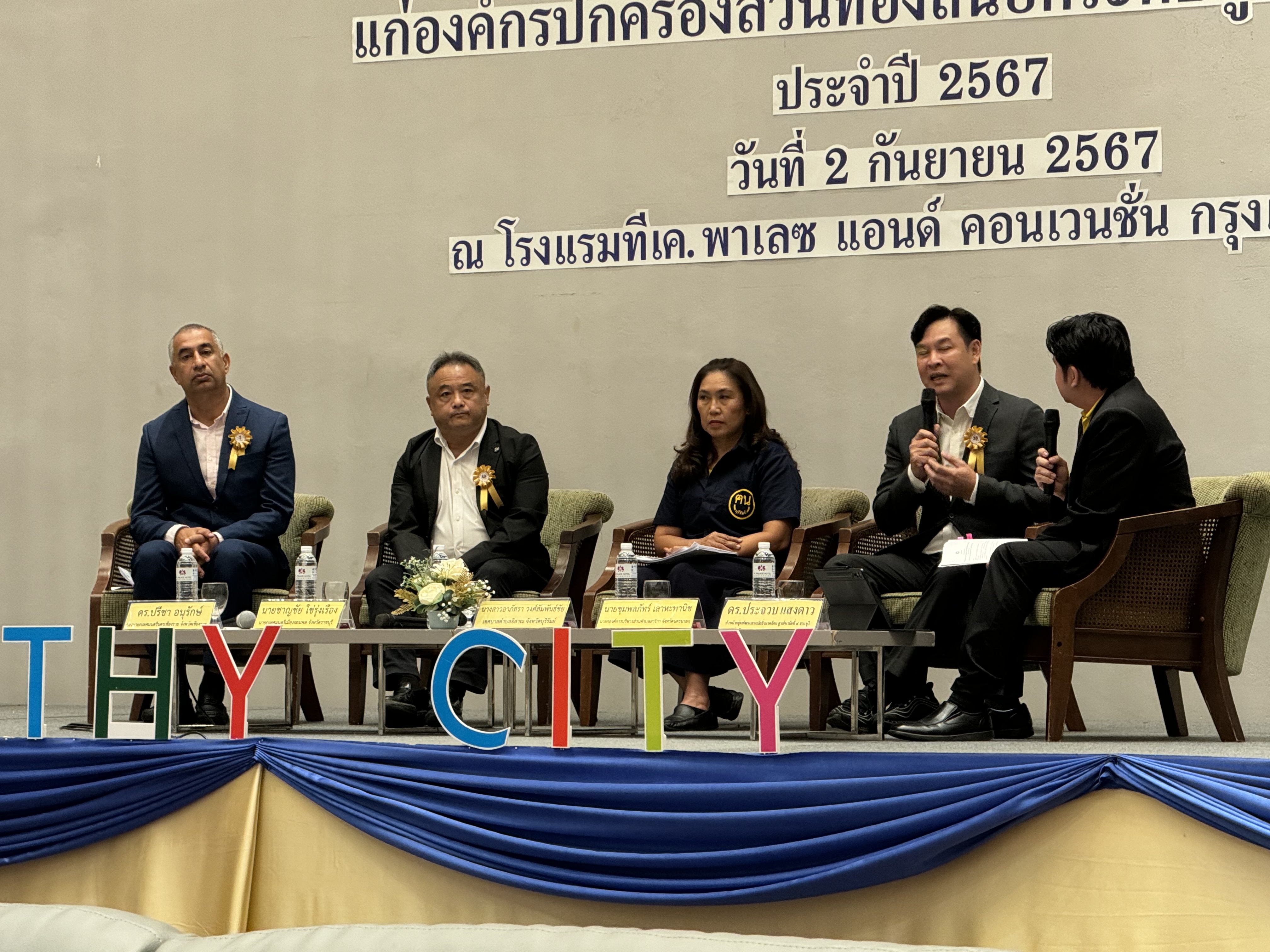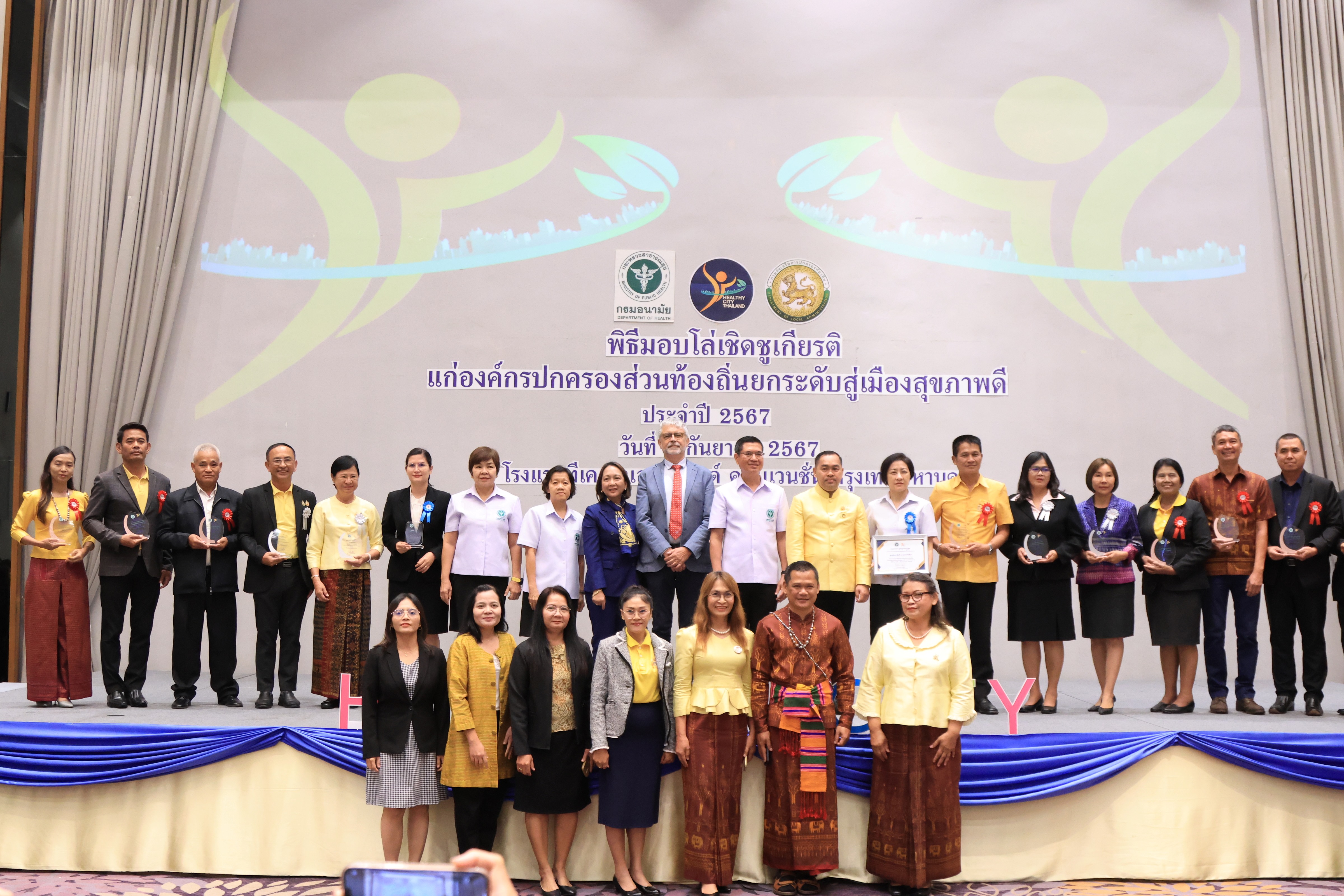The Thailand Healthy Cities Awards 2024, held on September 2nd in Bangkok, recognized the outstanding efforts of local administrative organizations (LAOs) in creating healthier urban environments. Organized by the Department of Health, Ministry of Public Health, the event highlighted the innovative initiatives by municipalities across Thailand aimed at improving public health and elevating the quality of life for their residents. The ceremony was attended by 550 participants, including stakeholders, partners, and representatives from Provincial Public Health Offices across the country.
In his opening address, Dr. Atthaphon Kaewsamrit, Deputy Director-General of the Department of Health, emphasized the importance of addressing the challenges posed by rapid urbanization and environmental pollution. He stressed that as cities expand and populations grow, it becomes increasingly vital to prioritize health in urban planning and to systematically collect and enter data into the information system. “Our cities are facing complex challenges, but the dedication and innovation shown by today’s awardees prove that we can create urban environments that truly support the health and well-being of our people,” Dr. Atthaphon stated.

Dr. Atthaphon Kaewsamrit, Deputy Director-General of the Department of Health, delivered an opening speech at the Thailand Healthy Cities Awards 2024, appreciating the continuing commitment of local authorities in promoting health and well-being in their cities. ©WHO Thailand 2024
Dr. Jos Vandelaer, WHO Representative to Thailand, delivered a keynote address titled “Healthy Cities: An Approach to Achieve a Good Quality of Life.” He highlighted the crucial role cities play in shaping the health outcomes of their inhabitants, emphasizing that urban areas can be vibrant, healthy communities that foster well-being.
He elaborated on the WHO’s Healthy Cities program, which has several domains including good governance, focus on vulnerable populations, access to services, emergency preparedness, and community engagement. He also appreciated Thailand’s achievement of having four out of the ten recognized Healthy Cities in the South-East Asian region.“Today’s event is a testament to the nation’s dedication to urban health, and I encourage continued efforts to expand these successes so that all cities in Thailand can be recognized as Healthy Cities,” Dr. Vandelaer remarked.

Dr. Jos Vandelaer, WHO Representative to Thailand, shares his perspective on how healthy cities contribute to a good quality of life and congratulates all the recipients of the Thailand Healthy Cities Awards 2024. © WHO Thailand 2024
Sharing Best Practices for Healthy Cities
The event also featured a panel discussion with representatives from Chiang Rai, Ratchaburi, Buriram, and Nakhon Nayok. These panellists shared their experiences in promoting healthy cities at the local level, discussing strategies for overcoming challenges and emphasizing the importance of collaboration and community involvement. They acknowledged that while creating healthy cities requires strong adaptability and leadership, the ultimate goal is to improve the lives of their residents.

Panelists from various provinces engage in a discussion on best practices for promoting healthy cities, sharing experiences and strategies for overcoming challenges to promote healthy cities. © WHO Thailand 2024
Recognizing Excellence in Public Health and Awarding of 274 Cities
The awards ceremony honoured five Provincial Public Health Offices for their exceptional contributions to the Healthy Cities initiative. Ubon Ratchathani received the first-place award, followed by Surin, Kamphaengphet, Nong Khai, and Chonburi. These offices were recognized for their successful projects, such as expanding green spaces, launching impactful public health campaigns, and building robust community networks that enhance the quality of urban life.
The highlight of the event was the recognition of 274 cities for their efforts in creating healthier urban environments. The awards were based on improvements in public health infrastructure, sustainability, and community engagement.
- Gold Awards: 67 cities were honoured for their exemplary urban health strategies with significant positive outcomes.
- Silver Awards: 69 cities were recognized for notable progress in health initiatives and enhancing community quality of life.
- Bronze Awards: 138 cities were acknowledged for laying strong foundations as Healthy Cities with promising development.
The Department of Health emphasized the importance of continued collective efforts to achieve and sustain Healthy Cities nationwide, with a target of 1000 healthy cities by the year 2027.

Representatives from one of the recognized cities’ local administrative organizations proudly pose with their honours at the Thailand Healthy Cities Awards 2024, celebrating their contributions to promoting healthier cities. © WHO Thailand 2024
The closing ceremony reinforced the collective commitment to advancing urban health across Thailand, with the participants encouraged to build on their successes and work towards a future where health and well-being are central to urban development. The Thailand Healthy Cities Awards 2024 served as a powerful reminder of the transformative impact of collective action and dedication in improving urban environments.
